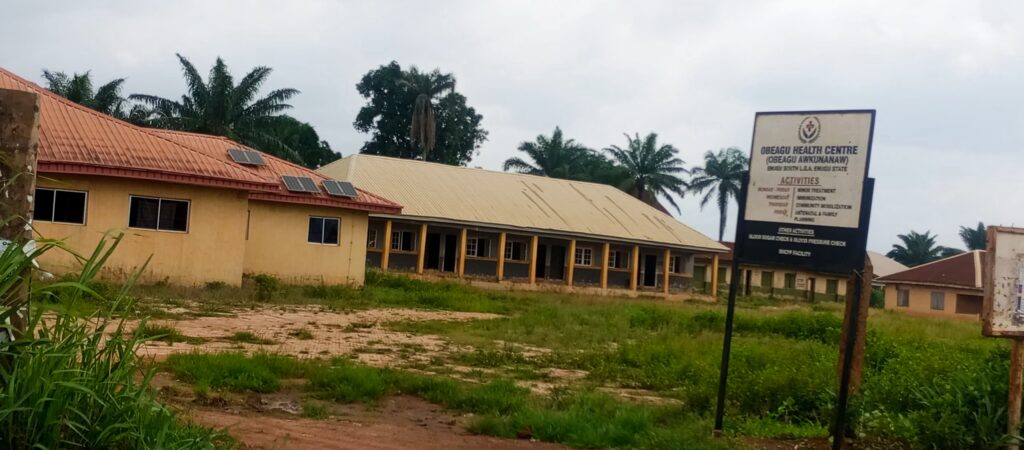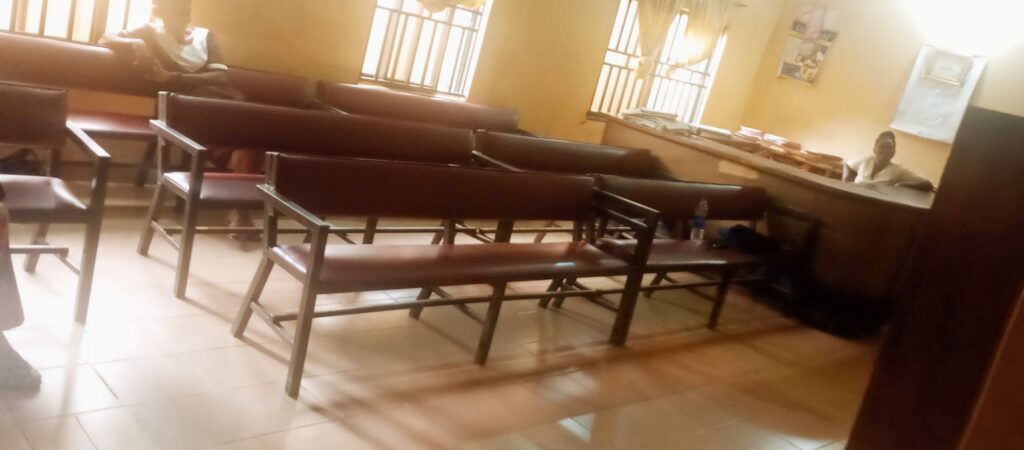Healing Nigeria from a Health Crisis to a Healthcare Roadmap
Nigeria’s healthcare system stands at a critical juncture, where concerted efforts and strategic investments can transform the nation’s health landscape, improving lives and securing a healthier future for generations to come.
By Precious Nwonu
In Nigeria, the quest for quality healthcare is a daily struggle. The country’s healthcare system is plagued by systemic challenges that hinder the delivery of essential health services. Insecurity, inadequate manpower, and lack of medical facilities and equipment are just a few of the obstacles that stand in the way.
A Midwife’s Plea for Security
Blessing, who wanted only to be identified with her first name, is a midwife at Amechi Health Centre in Enugu South LGA, highlighted the importance of security in healthcare. “To improve health services in the country, security should be provided for primary health centres, as this is currently lacking. More staff need to be employed because the existing ones are too few to handle the growing number of patients.” Her concern reflects the harsh reality health professionals face daily, deterring both existing and prospective workers from serving in high-risk areas.
The State of Healthcare Infrastructure
The lack of functional medical facilities and equipment is another significant challenge. According to the National Health Facility Survey (NHFS), only 29.9% of public Primary Health Care Centres (PHCs) have basic equipment like thermometers, BP monitors, and stethoscopes. Midwife Blessing added, “There is also a need for quality medical equipment, as the lack of it often forces us to improvise during emergencies.” Such improvisations can lead to diagnostic errors or life-threatening delays, underscoring the urgent need for reliable tools.

The Shortage of Healthcare Personnel
Nigeria’s healthcare system is further strained by a chronic shortage of personnel. With only about 20-25% of the country’s 34,076 PHCs functioning properly, the situation is dire. Pharmacist Nnenna emphasized the need for more capable hands, saying, “More capable hands should be employed to improve service delivery.” This shortage results in longer wait times, limited access to care, and overworked staff—many of whom eventually leave for better opportunities abroad, a phenomenon referred to as “Japa”.
A Parent’s Call for Comprehensive Reforms
Dupe Temitope, a parent, attributed the brain drain of doctors to the neglect of the health sector. “Health facilities in Nigeria are almost near obsolete, and our leaders focus more on politics than on health. That’s why many of our doctors are japa-ing to other countries for better opportunities.” She suggested comprehensive reforms, including providing modern equipment, training health workers, and increasing funding.
The Need for Stronger Government Support
Underfunding and poor infrastructure stand at the root of many challenges. Despite the introduction of policies like the National Health Act and the Basic Health Care Provision Fund (BHCPF), implementation remains spotty and inconsistent. Nurse Sylvia emphasized the need for regular training, adequate health workers, and a strong focus on prevention and health education. She also advocated for better health record systems, community involvement, and infrastructural improvements, particularly in health center layout and patient privacy.
Nigeria’s healthcare system requires a multifaceted approach to strengthen its services. Nwamua Daniel Onyekachi, a parent, echoed these sentiments and called for improved working conditions for doctors to prevent brain drain. He also stressed the need for enhanced medical education and independent monitoring of health workers. Notably, he suggested that government officials should prioritize fixing domestic hospitals rather than seeking treatment abroad.
Health worker Obodo Francica highlighted the importance of government provision of essential drugs, security, and regular supervision to improve healthcare services. This oversight could help identify gaps, ensure policy implementation, and provide feedback loops to enhance service delivery.

A Glimmer of Hope
Despite these challenges, there are signs of gradual progress. On July 1st, 2025, the Coordinating Minister of Health and Social Welfare, Prof. Muhammad Ali Pate, announced the disbursement of 32 billion naira to support over 8,000 primary healthcare facilities. This financial commitment, if properly monitored and equitably distributed, could revitalize Nigeria’s PHC system and close the service delivery gap.
The Way Forward
The path to improving Nigeria’s healthcare system lies in practical, well-coordinated, and inclusive reforms. These include deploying modern equipment, ensuring regular training for healthcare personnel, increasing funding, improving security in healthcare environments, reducing drug costs, and building trust through community engagement. With sustained political commitment and resource allocation, Nigeria can ensure that every citizen has access to safe, timely, and affordable health services.





Comments